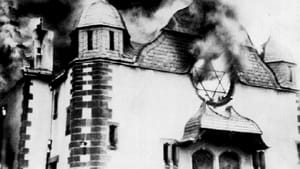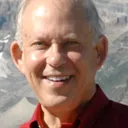Stay in the Loop
BSR publishes on a weekly schedule, with an email newsletter every Wednesday and Thursday morning. There’s no paywall, and subscribing is always free.
Toward healing our collective wounds
Philadelphia premiere of Stephen Paulus's 'To Be Certain of the Dawn'

Stephen Paulus’s Holocaust memorial oratorio, To Be Certain of the Dawn, is based on the verse from Leviticus that's often cited as the essence of Judaism: “You should love your neighbor as yourself.” As Jeffrey Brillhart, who is conducting the Philadelphia debut, noted, “When the Nazis demolished the Synagogue in Berlin, only one stone was left standing. And on that stone is inscribed that phrase in both Hebrew and German. The melody Paulus composed to convey that text is so beautiful, days later, it still soars through your memory.”
The mammoth work is scored for adult and children’s choirs, soloists (including a cantor), and orchestra. In addition, Brillhart has invited singers from the community to participate, including Jewish members of the Singing City Choir and singers from two temples on the Main Line.
The nightmare of Kristallnacht
In 1938, the Nazis destroyed the synagogues and broke the windows of the shops of the Jewish merchants in a night of terror known as Kristallnacht. Brillhart noted that, in the oratorio, “There is a very strong moment where the choir is asked to cry out and wail.” According to Brillhart, “There is a very haunting melody. You hear it, and then three days later, you’re still hearing it. As the chorus literally wails, the orchestra depicts the acts of the Nazis through the sound of breaking glass, the sound of hammers crashing against walls conveyed by the percussion.”
The three sections of the oratorio are “Renewal,” “Remembrance,” and “Vision.” “Renewal” is a call for people of all faiths to come together in love and healing. “Remembrance” recalls the events of the Holocaust on a very human level, including children talking and playing as the edicts and prohibitions against Jews foretell disaster. Some of the music in that section is based on images of Roman Vishniac’s Children of a Vanished World, a collection of photographs of Jewish life in Eastern Europe before the Holocaust.
Brillhart said, “The soloists take the characters of children, with haunting images of children talking to each other. You experience the innocence and naïveté of children, but overlaying the middle section, the adults intone the Nazi rules against the Jews. So it’s really disturbing.” The third section, “Visions,” brings us to the present time, and, said Brillhart, “You have an image of God, which suggests a human face reflecting the invisible face of God in the human world. We have voices of the survivors, so each of the soloists has a short phrase written in the first person.”
Reminding us that there’s another way
Brillhart expects that the oratorio will become an important choral work. “Even though the forces are huge, the overall impression that one gets is one of great intimacy," he said. "There are many moments that are full out fortissimo, really powerful, but then there are extremely quiet and intimate moments. In fact, the work closes with a whisper -- with the sound of the shofar calling out in the distance. It really leaves people in a quiet place. I hear echoes, for example, of Leonard Bernstein’s Chichester Psalms, whose third movement is very quiet.”
Paulus’s musical vocabulary is modern European and American, although there are moments where he captures the flavor of Hebraic music. Brillhart noted that “overall the music is very melodious. When the harmonies are harsh, it’s because the text demands it.”
The composition thus conveys the heaviness and sorrow that faced the Holocaust victims. But Brillhart observed that “the goal isn’t to make the listener feel depressed and heavy but to remind us of what happened — and then to tell you that there’s another way. It doesn’t have to be this way in the future.”
Echoes of the spirits
As I talked with Brillhart, intense emotions welled up inside me. I am Jewish and was an old enough child to notice the impact of the Holocaust on the Jewish families in Brooklyn in the 1940s, as they learned about who they lost and a few who welcomed survivors who came to live with them. Even though I wasn’t directly affected, Shoah has always been with me as a Jew on a very personal level. I shared some of my feelings with Brillhart and asked him what meaning he, a Christian, attaches to the Holocaust.
He and his choir have visited two concentration camps, Theresienstadt, outside of Prague, and Buchenwald. “When you walk on those grounds, you definitely feel the echoes of the spirits that were there,” he said. “It’s very disturbing. My connection with it is that holocausts are still happening all over the world. Millions killed in Africa and the Middle East. You can hide from it, or you can try to get involved and make a difference.”
As a Jew, I am impressed and moved that two prominent Christian congregations are sponsoring performances of this remarkable Oratorio as a way of reconciliation, healing, and moving together in unity and unconditional love of all human beings. As a music lover and journalist, I am equally moved that Stephen Paulus and Michael Dennis Browne — both Christians — joined forces to create a choral work of such scope and proportions, a heartfelt statement in music of the foundation of both Judaism and Christianity: universal love.
What, When, Where
To Be Certain of the Dawn. Stephen Paulus, composer; Michael Dennis Browne, librettist. Jeffrey Brillhart conducts the Chamber Orchestra of Philadelphia, the Bryn Mawr Presbyterian Church Choir, and the
Cathedral Basilica Choir. Elizabeth Weigle, soprano; Suzanne DuPlantis, mezzo-soprano; William Lim, tenor; Randall Scarlata, bass. Michael Hogue, cantor on March 20; Elizabeth Shammash, cantor on March 22.
March 20, 2015, 8pm: Cathedral Basilica of Saints Peter and Paul, 18th and Benjamin Franklin Parkway, Philadelphia; March 22, 2015, 4pm: Bryn Mawr Presbyterian Church, 625 Montgomery Avenue, Bryn Mawr. http://www.chamberorchestra.org/
Sign up for our newsletter
All of the week's new articles, all in one place. Sign up for the free weekly BSR newsletters, and don't miss a conversation.

 Victor L. Schermer
Victor L. Schermer